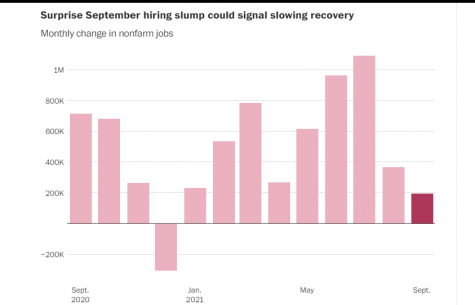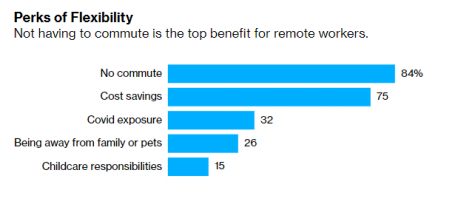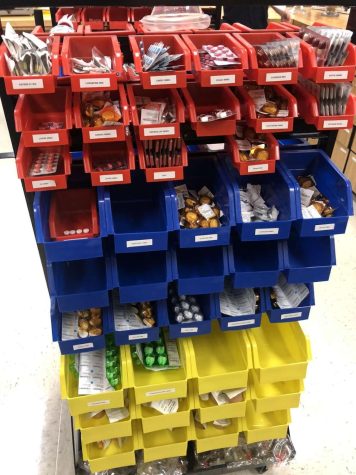American Employees Have Had Enough

Photo via Sales Force Blog
All across America, employers are losing workers and are unable to find employees to replace them. In the midst of the pandemic, employers have been pushing their employees to their limits, and the employees have finally had enough.
The Bureau of Labor reported as of Thursday, October 14th, there was a surplus of 293,000 unclaimed jobs, a huge increase from the previous week’s 36,000. This was an all time high of unemployment since the beginning of the pandemic. Economists had expected that as the world begins to open back up, our economy will rebound as of September. What we’re experiencing is instead the opposite. Last spring during the pandemic, 2.9% of American workers quit their jobs: a new record during the pandemic. Just in August 2021 alone, 4.3 million people quit. Experts are calling this phenomenon The Great Recession. As it turns out, there are many factors contributing to this issue, but most revolve around companies being unfair to expect so much from employees and give so little in return.

A PBS NewsHour interview with Rebecca Giver of Rutgers University explained some companies are using a Two-Tier System. This is essentially where new employees are paid less and have fewer benefits than people who have been on the job for longer. Companies usually use this system as a means of cutting costs. According to Jane Carter, a research director at the United Nurses Associations of California, the two-tier system is also used to crack down on unions by breaking up a sense of community with the workforce. As someone works longer with a company, it makes sense that their pay would go up overtime. What workers are finding unfair is that new and future employees don’t have access to the same benefits as people who have been on the job for longer. “We know [future workers] are coming behind us,” said David Woods, the international secretary-treasurer of the BCTGM. “Companies want to take away from future employees and that isn’t acceptable.”
During COVID, companies have been making record profits, but have been doubling down on their employees’ workloads… and their wages. “While we’re out saving the world, they’re planning our demise it seems,” said Kim Mullen, a union officer nurses at Kaiser South Bay in Los Angeles. She explains that their manipulation is an insult after everything their workers have done during the pandemic. As for wages, the average hourly wage increased by 4%, but inflation counters it with having raised 5.4% according to the Saint Louis Federal Reserve. This isn’t the first of unions to use this opportunity to strike against employers. Strikes have been made in practically every field from the medical to television production to manufacturing industries. As of October 17th, there have been strikes across America against 178 employers (statistics done by the Bureau of Labor).
Many people are discovering that they enjoy the flexibility and remoteness in this slow down. A survey by Mercer confirmed that 94% of the 800 participants found equal or greater productivity to in-person working. “Workers have proven themselves more capable of handling flexible work options during a crisis,” said Weiler Reynolds, the career development manager at FlexJobs. “Companies should continue to foster the sense of freedom and control that flexible work options provide.” Another survey in May, 2020 of 1,000 adults showed that 39% of the surveyed would quit their jobs if forced back into in-person commuting.

Whatever the reason or industry is, COVID has caused companies to lose more employees than they could have anticipated. Whether they’re with or without a union, these new unemployed people hold the power against large corporations. Companies are desperate for workers to meet pandemic and supply chain demands. Unions are hoping this impossible number of vacant jobs will cause their employers to redistribute money and make working conditions more flexible and favorable towards their workers.

Veronika Owen is the Co-Editor in Chief for the South Lakes Sentinel. She has had a passion for writing ever since third grade. When she’s not...

















